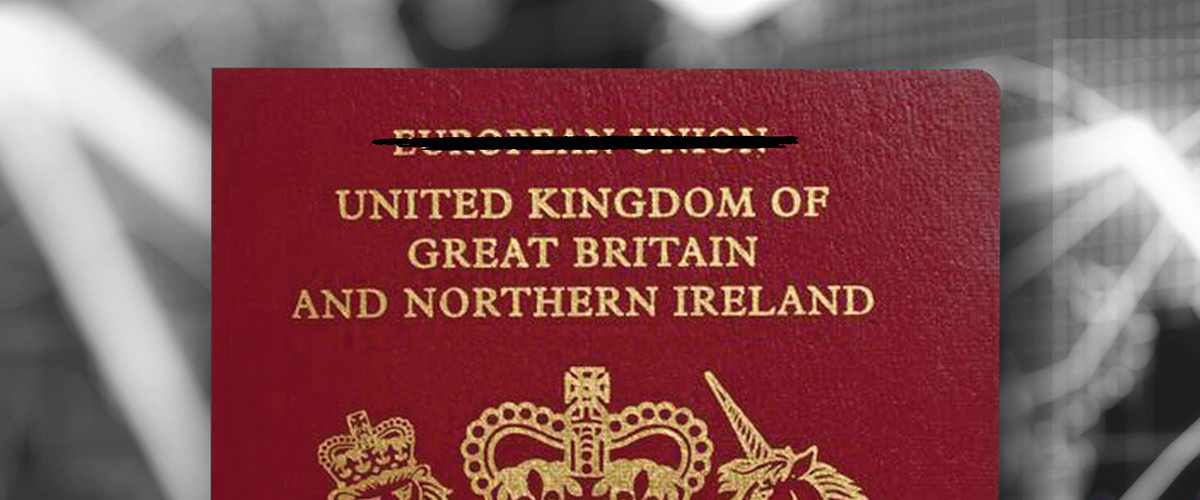Industry News

EU Citizenship after Brexit
- Posted on Jul 07, 2016
- In Press releases, UK
Will the UK abolish the Four Freedoms?
It is now official- the UK has voted to exit the European Union. There are still many questions begging for an answer, but the major one will be whether the UK will decide to remain part of the Single Market, or not.
Staying in the Single Market (European Economic Area (EEA) or European Free Trade Area (EFTA)) would put the UK in the same position as Norway and Switzerland, which means that it will have to apply the four freedoms i.e. freedom of movement for people, goods, capital, and services.
The proponents of Brexit, however, say that they will negotiate free trade agreements with the EU but that they will want to apply stay and work restrictions on EU citizens. There are, in theory at least, the following alternatives on the table:
- The UK opts to be part of the Single Market
- The UK goes back to the 1960’s style trade barriers and work and travel restrictions on EU citizens.
The major issue here is: will the UK abolish the four freedoms?
Free trade
The EU is the UK’s major trading partner. Any restrictions imposed by the UK on EU imports will automatically mean counter measures imposed by the EU. The result will be an economic recession in the UK and a rise in unemployment. It will be a measure running counter to the liberal psyche of Britain and a completely unreasonable and unlikely outcome.
Freedom of movement of capital
London is a major global financial center. It handles more than 40% of the global forex trade and is a home for the major global banks. Any restriction applied in the movement of capital will mean that the UK will diminish into third world country economic practices opting to be what is known as ‘Little England’. There can be no benefit for the UK and it is highly unlikely that the country will opt for this.
Freedom of movement of services
The UK economy is a service-based one: banking, insurance, shipping, education, health etc. Freedom of services is not fully in place now and no one knows when it will be enforced. It is however highly unlikely that the UK will try to place additional restrictions to services as it would be suicidal.
Freedom of movement of people
This is the burning matter and one of the major issues on which the referendum to leave the EU was based on. There are currently 3 million EU citizens living and working in the UK and 1.3 million UK citizens living and working in other EU countries. In other words, about 0.6% of the population of the other EU countries lives in the UK while about 2.0% of Britons live in the EU. The proponents of the ‘Leave’ campaign stated that the status of the EU citizens in the UK will not be questioned. What they also said is that they have no intention of restricting the freedom of travel but that they would like to know who comes into the UK. This means under current practices that there should be no restrictions on EU citizens travelling to the UK and staying for 90 days but longer stays and securing work would require the appropriate permits. The same regulations will apply to Britons going to live and/or to work in the EU.
The EU reaction
The UK is not the only player in this: the EU gets to decide too. The EU has handled dissent harshly so far: the Greek leader Alexis Tsipras was forced severely in line and other ‘adventurers’ were forced to crash-land. Giving the Brexit politicians freedom to pick-and-choose which of the Four Freedoms they like and apply will give others an incentive to try to do the same. Therefore, the EU will try to get the Brexit out of the way as soon as possible making Britain
- (a) either abide by the Four Freedoms (thereby effectively disregarding the referendum as in the case of the Greek one), or
- (b) submit to humiliating and damaging terms which will discredit the proponents of Brexit. The one with the most power here is the EU and not the UK which shows signs of falling apart (see Scottish and Northern Ireland’s reactions).
How attractive is EU citizenship now?
With or without the UK, there will be a European Union. EU’s relationship with the UK will be a favorable one in the long term. EU citizenship holders are likely to enjoy the freedom of travel to the UK as tourists and they will have the freedom to study and invest in the UK as it is now. However, some restrictions will most likely apply if they want to work in the UK.
Will an EU citizenship improve investors’ current conditions? The answer is YES, and it will continue to do so.
QUICK FACTS
- The UK voted to leave the EU with 51.9% majority and a turnout of more than 33.5 million people (72.2%)
- Scotland voted to remain in the EU, with 63% majority
- Wave of resignations:
- David Cameron (Prime Minister) has resigned
- Boris Johnson (MP and a former mayor of London) has announced that he will not run for PM
- Nigel Farage (UKIP leader) has resigned
- The pound fell to its lowest level against the dollar since 1985
- Moody’s has changed the UK’s credit rating outlook to “negative” from “stable” due to the uncertainty
- The euro has been relatively stable, but the long-term prospects are for a weaker euro over time, lower European growth, and thus a poorer outlook for European assets with fears of significant loss of values for holders of Eurozone government bonds
- The future Prime Minister will have to pass the decision to leave the EU through the national Parliament, then trigger Art. 50 from the Treaty of Lisbon and only then begin the negotiations on the Brexit terms (to be finalized within 2 years)
- The new trading agreements between the UK and the EU are to be negotiated in parallel. They will have to be separately approved by all 27 member states and ratified by their national parliaments and the European Parliament
- None of the terms of Brexit have been previously discussed and the Leave campaigners do not have a clear Brexit strategy
Related news

Understanding Electronic Travel Authorization (ETA)
2024-11-01Understanding Electronic Travel Authorization (ETA)
What is ETA? In recent years, the Electronic Travel Authorization (ETA) has emerged as a
Canada, Europe, Industry News, UK
Arton Capital partners with Prestel & Partner
2024-09-11Arton Capital partners with Prestel & Partner
Arton Capital partners with Prestel & Partner, unlocking global citizenship for family offices. September 10th,
Arton, Press releases
Arton Group expands into software development with the acquisition of Sheppa Technologies
2023-01-24Arton Group expands into software development with the acquisition of Sheppa Technologies
Arton Group has announced the strategic acquisition of Sheppa Technologies, supporting the continued development of
Press releases
SHUAA and Arton announce partnership to encourage foreign direct investment in high growth markets
2020-11-17SHUAA and Arton announce partnership to encourage foreign direct investment in high growth markets
Dubai, United Arab Emirates, 18 November 2020: SHUAA Capital psc (DFM: SHUAA), the leading asset
Montenegro, Press releases



